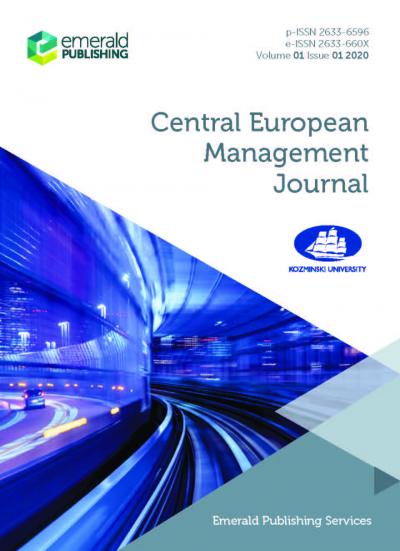No Trust vs. Some Trust in a Game Framed as Trust or Investment: Avoiding the Distrustor
Anna Macko
Kozminski University
12/2020 28 (4) Central European Management Journal
DOI 10.7206/cemj.2658-0845.35








